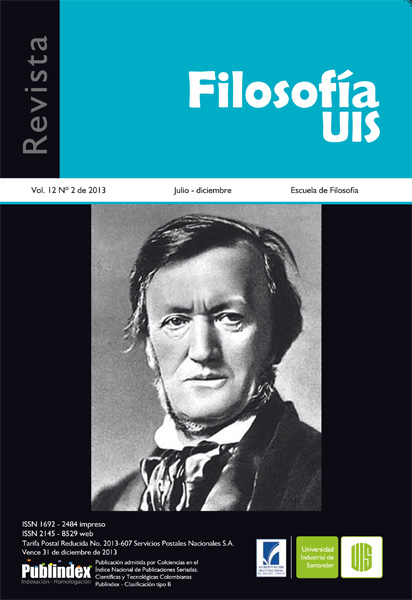Published 2013-12-04
Keywords
- Sartre,
- Husserl,
- phenomenology,
- subject,
- conscience
How to Cite
Copyright (c) 2013 Michele Botto

This work is licensed under a Creative Commons Attribution 4.0 International License.
Abstract
This article aims to present the emergence of the problem of the subject in the philosophy of Jean Paul Sartre. It is the Sartre of La transcendance de l'Ego, a fundamental work to understand the association Io = Nothing of the following L'être et le néant. In his youth, Sartre was inspired by Husserl's phenomenology and wanted to follow that trail. Phenomenology seemed to be an adequate tool for reaching the "things themselves". But the great difference between Husserl and Sartre will be precisely the question of the subject, which for Husserl is an a priori condition while for Sartre it is evanescent and therefore not fundamental.
Downloads
References
- De Beauvoir, S. (1960). La force de l’âge I. Paris: Gallimard. Trad. propria.
- Comolli, F. (1989) “Le strutture trascendentali della coscienza nel primo Sartre: ipotesi di lettura”. Rivista di filosofia neo-scolastica. (1). pp. 107-137.
- De Coorebyter, V. (2000). Sartre face à la phénoménologie, autour de “L’intentionnalité” et de “La transcendance de l’Ego”. Bruxelles: Editions OUSIA.
- Desanti, J-T. (1990). Sartre et Husserl, ou les trois cul-de-sac de la phénoménologie transcendantale. “Les Temps Modernes”. 531.
- Glynn, S. (s.f.). “Identity, Perception, Action and Choice in Contemporary and Traditional “No-Self” Theories”. En: http://www.bu.edu/wcp/Papers/PPer/PPerGlyn.htm (visitato il 2 aprile del 2013).
- Husserl, E. (1965), Idee per una fenomenologia pura e per una filosofía fenomenologica, a cura di G. Alliney ed E. Filippini, Einaudi, Torino.
- Husserl, E. (2002). Meditazioni cartesiane. trad. di F. Costa. Milano.
- Levinas, E. (1984). La thèorie de l’intuition dans la phénoménologie de Husserl. Paris: VRIN.
- Mouillie, J.M. (1999). Sartre et Husserl: une alternative phénoménologique? In AA.VV., Sartre et la phénoménologie, E.N.S., Fontenay Saint-Cloud. 1999.
- Sartre, J. P. (1947). Une idée fondamentale de la phénoménologie de Husserl: l’intentionnalité, in Situations I. Paris: Gallimard.
- Sartre, J.P. (1978). La transcendance de l’Ego. Esquisse d’une description phénoménologique. Paris: VRIN.
- Sartre, J.P. (1997). L’essere e il nulla. Saggio di ontologia fenomenologica. Trad. it. di G. Del Bo. Il Saggiatore. Milano.
- Sartre, J. P. (1947). La nausée. Trad. di B. Finzi. Einaudi. Torino.
- Sartre, J. P. (1995). Carnets de la drôle de guerre. Septembre 1939-mars 1940, Paris: Gallimard.
- Varet, G. (1948). L’ontologie de Sartre. Paris: P.U.F.
